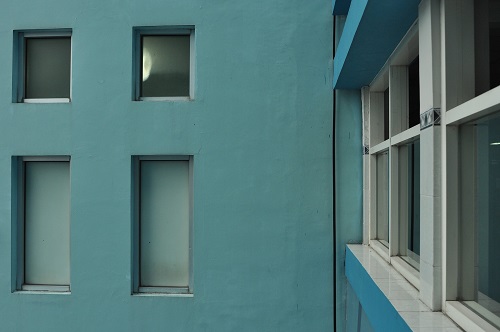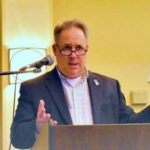pixabay photo
By
Niles Reddick
Making Ends Meet
Albert had been admitted to the critical care unit of the hospital with a window view of the funeral home. He didn’t think about the funeral home, however, because he drove past it every day on his way to work at the paper mill. His was an assembly line job, and he’d done it for forty years. He hadn’t feel great when he got up, but he was nearly seventy and didn’t feel good most days. Between Medicare and a bridge policy at the mill, he was covered if he needed anything.
When he couldn’t pull the lever, because his arm didn’t work, the supervisor did it and told him to go to the doctor, that he might be having a stroke. His mama and daddy had died of strokes. His daddy’s was quick. He just tumbled forward in the chicken coop, sending the chickens flapping around in the pen. He was dead when they got him to the hospital. His mama’s wasn’t nearly as bad, or good, depending on the perspective. Hers left her in a wheelchair for ten years until another one took her to what’s next.
Albert went home, told his wife he was sick, and laid down. Melba went to check on him after the soaps were off and realized his speech was slurred and he couldn’t move his right arm. She said they needed to get to the hospital and called 911. She was mad at herself for not checking more when he came home and mad at him for not going straight to the emergency room from the mill, but Melba knew that was the way he was. Always had been. Albert chose home remedies and herbal cures over medicine any day of the week, and there was something to be said about his will. He was strong and hadn’t been sick much during his adult life.
When he was in the emergency room, he told them he’d taken an aspirin, that he might have some herbs at home that would help, but the medical doctor told him there was no herbal Drain-O and he’d need to get the medical roto-rooter to the unclog those carotid arteries. When the young surgeon dashed out in his green outfit, Albert told the nurse, “He’s just trying to milk Medicare and my insurance for his European vacation.”
“You need to rest and not worry about that kind of stuff.” He heard stories of people who couldn’t make ends meet living on Social Security, paying for bridge policies to get them fully covered with Medicare. He remembered the bills his own mama had piled up through the years. If she would’ve owned her house, the hospital would have owned it by the time they got through milking her. Fortunately, they couldn’t take her burial policy she paid on through the years. In the end, there was simply too much month at the end of her money and Albert helped her all he could.
When Albert and Melba’s daughter got word about her daddy, she locked her computer in radiology and headed upstairs to the critical care unit, and she called her brother who was the assistant principal at the middle school. When she walked in, her dad started: “I got some stuff at home that will clean out these arteries. They’re just trying to make money. You work here. You ought to know.”
“Daddy, you’re right, but quit worrying. This procedure is easy, you won’t feel a thing, and you will buy time.”
When the nurse came in to get his vitals, he told her the same thing he’d said twice to the first nurse and to his daughter, but this time he added: “My daughter over there agrees with me, too.”
The nurse smiled politely, gave him a shot to keep him calm before he had another stroke, and told him not to worry about such things, and when she left the room, he told Millie, “I can’t afford to quit working. I can’t sit home and watch soaps with your mama all day. We couldn’t pay the phone bill, electric bill, buy groceries, and pay the supplemental policy on what Social Security will send. I say put all them damned politicians on a limited income, cut off their corporate IV, and see if they don’t help the people who built this country and keep it going.”
“Daddy, rest. I’ll help you and mama. Ya’ll can move in with me and we’ll add you to my insurance.”
Albert closed his eyes and dreamed of gathering eggs from his parents’ chickens and selling them from a wheelchair in front of the funeral home to hospital patients who didn’t make it.
Damascus Road
When I backed into the parked car I didn’t see in a well-lit parking garage, I thought I might have had a seizure or something. A few days later, my daughter was riding with me after a high school soccer game and I said, “You see that deer over there? If it starts moving toward the road, let me know.”
“What deer?”
“Good night! Can’t you see it?” I pointed.
“Dad, that’s not a deer. It’s a hedge.”
“Oh,” I said. I still slowed the vehicle.
A week later, I finally decided to get a follow-up and see if my vision had deteriorated. After the hour wait, I read the eye chart as best I could. I couldn’t see the bottom two lines at all and told the assistant: “I don’t believe anyone could see that. Besides, the only thing that small would be bugs and if you could see the detail of them splattering on the windshield, it would make you sick.” The doctor’s assistant smirked. When the doctor finally made it in, I asked him if my eyesight was worse. “No,” he said, “It’s as bad as it was last year and the year before that when we checked it. You really ought to have those cataracts removed. I don’t know how you are even driving.”
“Well, will insurance cover it?”
“Yes.”
“Do you do the surgery?”
“No, we refer to the Surgery Center.”
“Is it safe?”
“Yes, it should be. It only takes about ten minutes and they’ll give you something that will relax you completely.”
“Alright. I’m in.”
“Good, we’ll set it up for Monday around lunch. The nurses will give you some instructions.”
“Thanks,” I said, and he nodded, grabbed my chart, and went out the door.
The next Monday seemed to pass slowly. I had strict directions that I could not eat or drink after midnight and I felt starved. My stomach rumbled and I was anxious. I didn’t have to wait long before a nurse called out my name and I followed her into the unit. I removed my shoes and climbed on the bed. They didn’t make me disrobe. Directions to remove any dentures or jewelry followed by questions about drug allergies and confirmation I hadn’t had food or drink came before an IV, blood pressure cuff, and heart rate monitor. One of the nurses brought me a pill and said, “Swallow this. It will help you relax. It’s Xanax. Your blood pressure is a little high.”
A few minutes later, another nurse came in, told me this would also help me rest, and shot Versed into the IV. When I woke in the same bed, with a warm blanket on top of me, the nurse said, “How do you feel?”
“Fine,” said. I had a patch over my eye and she asked, “What would you like to drink?”
“Diet coke with ice.”
“Okay, would you prefer crackers or cookies?”
“Cookies,” I said. “What kind of cookies?”
“Fudge striped.”
“Yes. I haven’t had those in a while.”
I got home, ate lunch, and went to bed. I slept for three hours, woke up, and watched all the bad news with my remaining bad eye. The next morning, I enjoyed coffee before my follow-up. The nurse removed the bandage, cleaned the gunk around the eye, and told me to read the charts. Not only could I read the chart again, the letters were bold and clear. It was amazing. As I left the office with instructions to put three different types of drops in my eye, I was stunned at color, the detail. I could see cracks in the asphalt in the parking lot, details of clouds, leaves and pine needles on trees. I saw dust particles in the air. When I got home, I went to a mirror and noted aside from the bloodshot and swollen eye, I could see where I’d missed hairs in a shave, noted an ear hair and nose hair I hadn’t seen earlier. Everything was so clear that it was almost overwhelming at times and I felt wobbly. It was as if I had been like the biblical character Paul on the Damascus Road, blinded by the light, or if Amazing Graze should be my theme song with its verse: “I was blind, but now I see.” I was appreciative and felt I’d been given a second chance to see the world. I wanted to shout the message of cataract surgery from the mountain tops and in the days that followed I began to evangelize to cashiers at the grocery store, waiters in restaurants, and employees at work.
After a week, I had the second eye surgery. It went as well as the first and I was no less impressed. About a week later, after the swelling and redness were gone, and my vision was 20/20, I came home to bills from the surgeon, surgery center, anesthetist, and my optometrist. While I knew they couldn’t repossess my new lens implants, I chose to pay them anyway.
Niles Reddick
Niles Reddick is author of the novel Drifting too far from the Shore, a collection Road Kill Art and Other Oddities, and a novella Lead Me Home. His work has been featured six anthologies and in over a hundred literary magazines all over the world including Flash: The International Short-Short Story Magazine, Drunk Monkeys, Spelk, Cheap Pop, The Arkansas Review: a Journal of Delta Studies, The Dead Mule School of Southern Literature, The Miscreant, Slice of Life, Faircloth Review, among many others. His website is www.nilesreddick.com



No Comments Yet!
You can be first to comment this post!